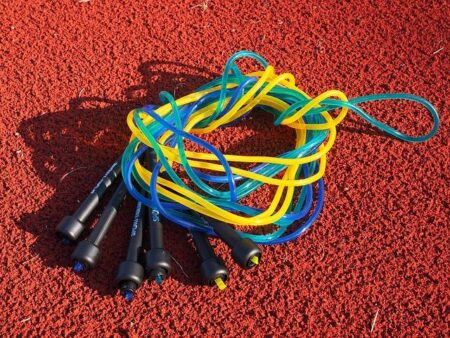American sprinter Fred Kerley, a reigning world champion and Olympic medalist, has been provisionally suspended following a whereabouts failure charge, the latest development in the sport’s ongoing battle against doping violations. The New York Times reports that the suspension stems from Kerley’s alleged failure to provide accurate location information required for out-of-competition drug testing, a critical component of anti-doping protocols. This suspension casts uncertainty over Kerley’s immediate competitive future and raises important questions about compliance and accountability within elite track and field.
Fred Kerley Faces Provisional Suspension Over Doping Control Violation
Fred Kerley, the eminent American sprinter and reigning world champion in the 400 meters, has been provisionally suspended following a reported doping control violation related to missed whereabouts filings. The Athletics Integrity Unit (AIU) confirmed that Kerley failed to provide accurate and timely information about his location, a crucial requirement under anti-doping regulations designed to facilitate out-of-competition testing. This marks a significant setback for the athlete, who has been a dominant figure on the track and a strong contender for the upcoming World Championships and Olympics.
The AIU’s announcement highlighted the severity of “whereabouts failures,” noting that an athlete can face suspension after accumulating three such failures within a 12-month period. The provisional suspension means Kerley is currently barred from competition pending the outcome of a full investigation. Below is a summary of the key points related to whereabouts violations:
- Whereabouts Filing: Athletes must update their location quarterly for potential testing.
- Missed Tests: Failing to be available at the declared location counts as a “missed test.”
- Strike System: Three failures within 12 months can trigger suspension.
- Consequences: Suspension can last from several months up to four years depending on the case.
| Violation Type | Threshold | Potential Suspension Length |
|---|---|---|
| Missed Test | 3 within 12 months | Up to 4 years |
| Filing Failure | 3 within 12 months | Up to 4 years |
Understanding the Whereabouts Failure Charge and Its Impact on Athletes
The whereabouts failure charge is a significant anti-doping violation that occurs when an athlete repeatedly fails to provide accurate and timely information regarding their location to anti-doping authorities. This system, designed to allow out-of-competition testing, relies heavily on the athlete’s cooperation. A missed test or a failure to update the whereabouts form can trigger this charge, which usually escalates after multiple infractions within a 12-month period.
Understanding this charge is crucial, as it directly impacts an athlete’s professional career and reputation. Consequences often include:
- Provisional suspensions pending investigation
- Possible multi-month competition bans
- Damage to public image and endorsement opportunities
| Key Factors | Details |
|---|---|
| Number of Failures | Three missed tests or filing failures in 12 months |
| Investigation Period | Up to several months, depending on case complexity |
| Sanctions | Suspension, disqualification of results, fines |
Implications for Kerleys Career and the U.S. Track and Field Community
Fred Kerley’s suspension casts a shadow over what has been a meteoric rise in American sprinting. As a multiple world medalist and Olympic silver medalist, Kerley’s absence from competition during the provisional period could disrupt his momentum and affect his preparation for upcoming major events, including the World Championships and the Olympics. Sponsors and fans are also likely to reconsider their support amid uncertainty, placing additional pressure on the sprinter to clear his name swiftly. Beyond the personal ramifications, Kerley’s situation underscores the strict and often unforgiving nature of anti-doping regulations, where even procedural missteps like whereabouts failures can lead to significant career consequences.
For the broader U.S. track and field community, the case brings into focus several critical issues around athlete compliance and the sport’s reputation. Governing bodies may be prompted to enhance education programs about anti-doping protocols, while athletes are reminded of the meticulous responsibilities required off the track. The ramifications of this suspension could ripple through team dynamics and qualification processes, especially considering Kerley’s role as a leading figure in U.S. sprinting. Key points to consider include:
- Increased scrutiny on athlete whereabouts filings and anti-doping measures.
- Potential policy revisions to assist athletes in managing compliance.
- Impact on public perception of U.S. track and field integrity.
| Aspect | Potential Impact |
|---|---|
| Kerley’s Competitive Standing | Missed key events, ranking drops |
| Sport Governance | Stronger oversight and education |
| Fan and Sponsor Trust | Possible erosion, cautious engagement |
Best Practices for Athletes to Avoid Anti-Doping Rule Violations
To minimize the risk of anti-doping rule violations, athletes should prioritize meticulous record-keeping and proactive communication with their respective doping control organizations. Ensuring that all whereabouts information is up-to-date and submitted accurately within deadlines is critical. Missing paperwork or incorrect data can lead to whereabouts failures, which, as seen in recent high-profile cases, carry severe consequences. Maintaining a reliable calendar system-digital or otherwise-helps athletes keep track of testing windows and competition schedules effectively.
Key practices include:
- Consistent updates: Submit whereabouts information promptly and verify that all details are current before each deadline.
- Open communication: Inform anti-doping authorities immediately of any changes in training or travel plans.
- Education and training: Stay informed about anti-doping regulations and participate in available workshops or briefings.
- Use of technology: Employ apps approved by the World Anti-Doping Agency (WADA) to streamline whereabouts submissions.
| Practice | Benefit |
|---|---|
| Daily whereabouts reporting | Reduces risk of missed tests |
| Prompt notification of absences | Prevents location discrepancies |
| Attend anti-doping workshops | Enhances rule compliance |
| Use approved mobile apps | Ensures easy and accurate updates |
The Conclusion
As the investigation into Fred Kerley’s whereabouts failure continues, the athletic community awaits further details and official rulings. Kerley’s provisional suspension underscores the strict enforcement of anti-doping regulations designed to preserve the integrity of the sport. Updates are expected as authorities review the case, which could have significant implications for the U.S. sprinter’s career and upcoming competitions.





